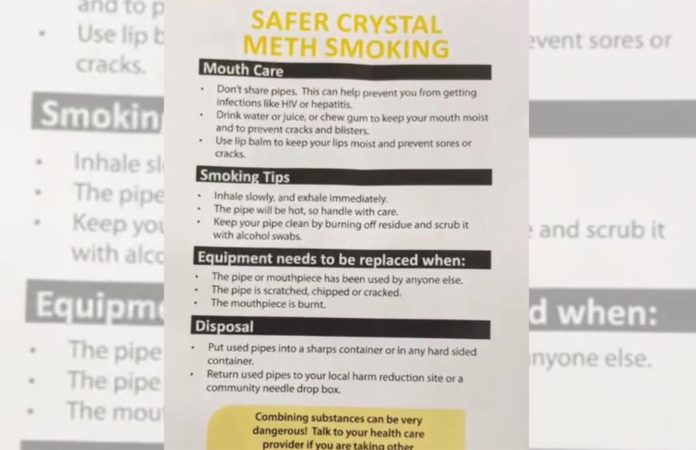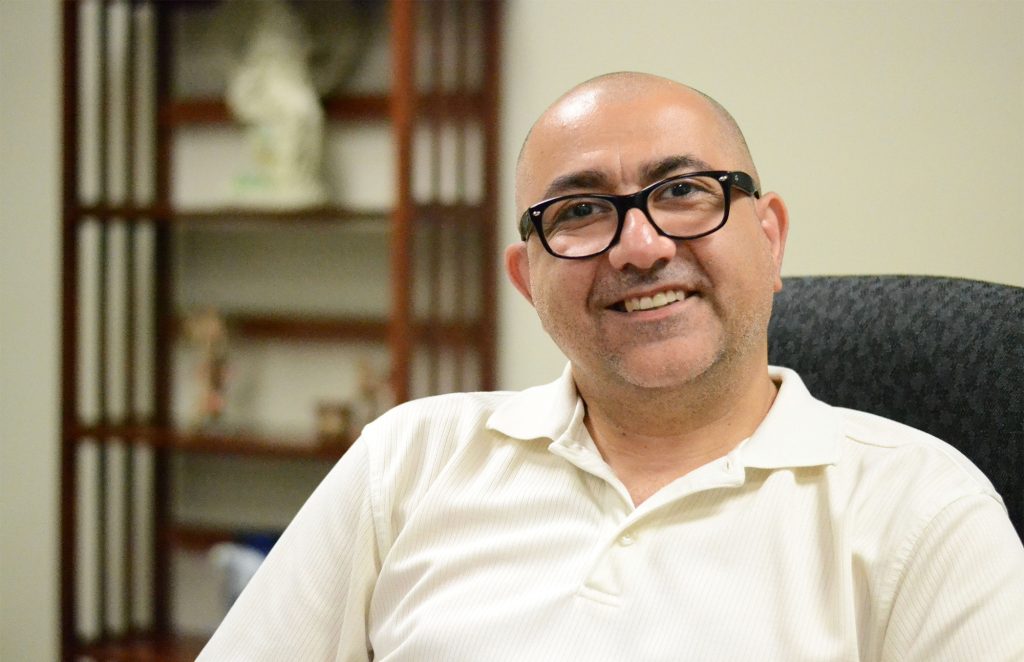
A Prince Albert HIV educator is standing by the province’s kits for safely smoking crystal meth and crack cocaine despite criticism circulating online.
In 2018, the Saskatchewan Health Authority announced it would be following in the footsteps of other provinces by distributing safe inhalation kits.
The kits include clean pipes and a pamphlet with instructions and tips for safer smoking.
Mouth care tips include drinking water or using lip balm to prevent sores and cracks. In another section, titled ‘smoking tips,’ the pamphlet says to “inhale slowly, and exhale immediately,” “The pipe will be hot, so handle with care” and to “keep your pipe clean by burning off residue and scrub it with alcohol swabs.” The pamphlet also informs users on when to replace equipment and how to properly dispose of used pipes.
Dr. Amin Makki is the community health advisor for the Prince Albert Metis Women’s Association.
He said the kits are beneficial for reducing the spread of infections, such as HIV and Hepatitis C – something he said most aren’t aware can quickly spread through pipes, spoons and filters, not just through needles.
“Because of the heat and the dryness of the surface, some small, microscopic tissue from the lip can stick to the pipe. When they give it to someone else to use it, the process repeats,” explained Makki.
“They can transmit HIV that simply.”

Even if someone is aware that they’re HIV positive, he said, they may not be aware of this type of transmission.
Makki added that, from his experience, most people using makeshift pipes, made out of broken bottles or lightbulbs, are already HIV positive. Having clean pipes can halt the ripple effect of the spread of HIV, he said.
According to an emailed statement from the Saskatchewan Health Authority, harm reduction is an evidence-based and low-cost way of preventing the spread of disease and lowering the risk of overdose deaths.
“Harm reduction programs are also an effective way to engage in a non-threatening way with people facing addiction issues to encourage and assist them in seeking treatment,” reads the statement.
“In Saskatchewan, harm reduction initiatives do not supply drugs, do not make it easier to access drugs and do not make drug use more appealing.”
‘It’s just a backwards approach’
The safe inhalation kits have garnered criticism online from the Buffalo Party of Saskatchewan.
A Tweet on the Buffalo Party’s account includes a photo of the pamphlet, reading “Why is the Saskatchewan Health Authority creating ‘how to’ pamphlets on smoking crystal meth? Is this the provincial gov’t’s idea of addictions counselling?”
The party’s Saskatoon regional director, Tony Ollenberger, said the government should be focusing more on treatment than harm reduction.
“What they’re doing is telling addicts ‘We don’t think you can ever be any better than what you are right now. We think you are going to be an addict for life and we’re just going to enable it,’” he said.
“We actually want to tell people ‘If you have a problem with substance abuse, we want to help you.’”
While Ollenberger said he doesn’t support other harm reduction initiatives, such as safe consumption sites or needle exchange programs, the kits have specifically “angered” him.
“It’s just a backwards approach, in my opinion,” he said.
He added that preventing the spread of HIV or Hepatitis C comes down to a lack of education, but he’s “not sure how far education can go.”
“I’m not certain if somebody who’s looking for their next fix really cares that their needle is dirty or not. They just want to get high again.”
Kits need to be more widely distributed, Makki says
Makki said the health authority’s safe inhalation kits should be made accessible beyond larger cities.
He suggested distributing them to rural areas, especially Indigenous communities – this also applies to clean needles and self-testing HIV kits.
Speaking more openly about safer drug use lessens the stigma surrounding HIV, he said.
“Year after year, it’s getting much better, but the problem is most of the services are, I would say, localized in bigger cities and there’s a lack of staff,” said Makki.
According to the Ministry of Health, Saskatchewan has the highest rate of HIV in Canada, with a record 237 diagnoses in 2021.

